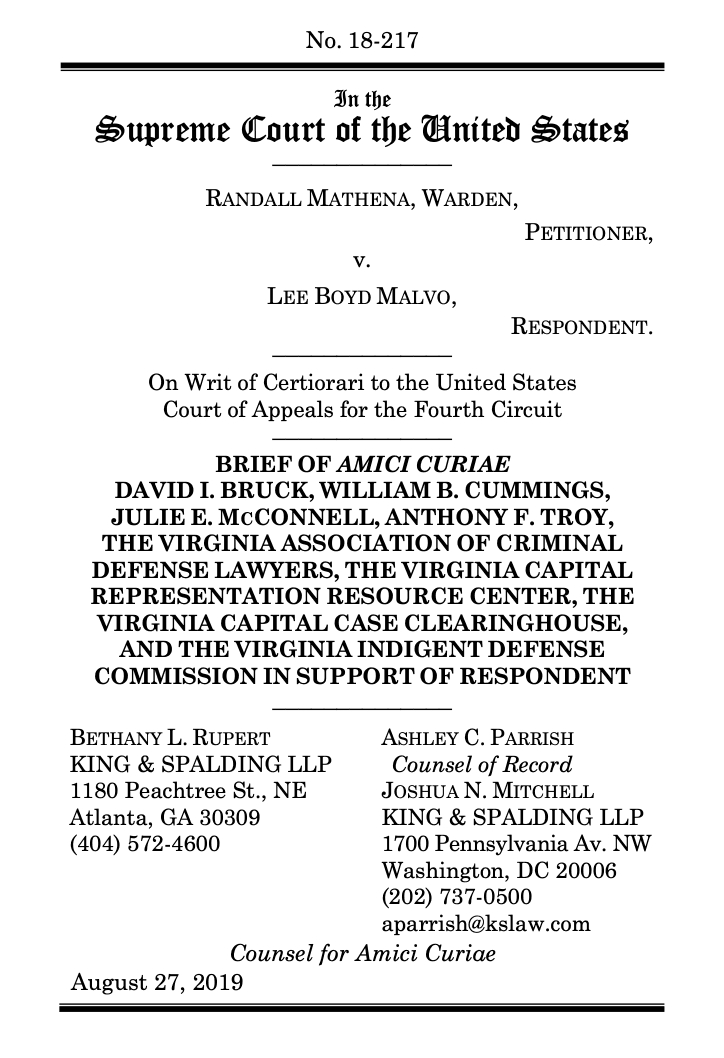
Summary of Argument
In Miller v. Alabama, 567 U.S. 460 (2012), this Court concluded that a sentence of life without the possibility of parole is a cruel and unusual punishment for most juvenile offenders. Because juveniles have “diminished culpability and greater prospects for reform,” id. at 471, this harshest of sentences is disproportionate except in the rare circumstance where a juvenile is incorrigible, with no capacity for potential rehabilitation. As Montgomery v. Louisiana explained, a state’s sentencing scheme must “give effect[] to Miller’s substantive holding that life without parole is an excessive sentence for children whose crimes reflect transient immaturity.” 136 S. Ct. 718, 735 (2016).
Virginia’s sentencing scheme does not satisfy these requirements. When a Virginia court sentences a juvenile offender for capital murder, there is no meaningful procedure by which the court engages in the individualized inquiry that Miller requires. As this case illustrates, juvenile offenders in Virginia routinely receive life-without-parole sentences without any court making an individualized assessment that takes account of the offender’s youth and whether the child is irreparably corrupt.
The Warden does not dispute the reality of how Virginia’s sentencing scheme works in practice. Nor does he deny that the sentencing court in this case never undertook an individualized assessment that considered the defendant’s youth and his capacity for rehabilitation. Instead, the Warden urges the Court to limit Miller to “mandatory” life-without-parole sentences and argues that Virginia’s sentencing scheme is “discretionary” because courts have residual authority to suspend a sentence. But Virginia courts very rarely use their suspension power, and nothing compels them to engage in the individualized inquiry that Miller requires. If the Warden’s position is accepted, the substantive rule of constitutional law that Miller recognizes will be rendered ineffectual for juvenile offenders in Virginia. Instead of being a rare exception, life-without-parole sentences for juveniles will remain commonplace, imposed in virtually every capital-murder case in which they are proposed.
This Court should not countenance the Warden’s attempt to carve out a large, unwarranted exception to the constitutional guarantee that Miller recognized as beyond a State’s power to evade. Instead, the Court should hold that because the sentencing court in this case did not undertake an individualized inquiry into the defendant’s youth and his capacity for rehabilitation, re-sentencing is required. The Court should affirm the Fourth Circuit’s judgment.